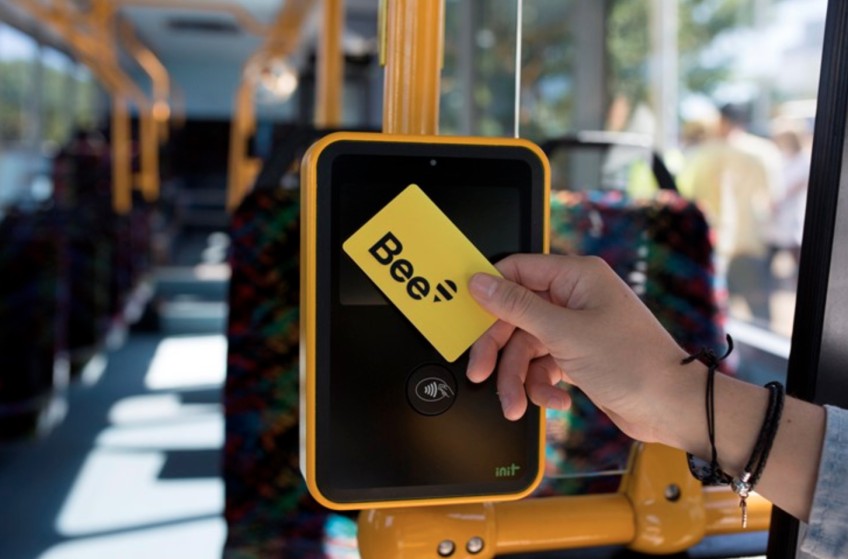New $2 online bus card - and free until September

From the Otago Regional Council.
The new bus card will go live in Dunedin on 1 September, with Queenstown to follow soon after.
The tag on tag off bus card is available to order online from today at www.beecard.co.nz.
Bee Card, which is already in use in several other regions in New Zealand, will replace GoCard as the bus card for the Orbus networks in Dunedin and Queenstown. Passengers will start using them in Dunedin on 1 September and in Queenstown from mid-September.
Bee Cards will also be available free of charge this week from bus drivers in Dunedin, and next week from drivers in Queenstown. They are also available from Otago Regional Council (ORC) offices in both Dunedin and Queenstown.
There are two ORC offices in Dunedin where passengers can pick up a card – one at 70 Stafford Street, and another at Philip Laing House on the corner of Rattray and Princes Street, near the Exchange. The Queenstown office is at 1092 Frankton Road (Terrace Junction).
ORC Manager Transport Garry Maloney said that Bee Cards can be registered online to access a range of additional benefits.
“Registering your Bee Card online will help you get the most benefit from the new system. It will mean you’re able to top up online, set an auto top-up, load child concessions, view your travel history, and more.”
Also live today is the ability to transfer existing balances from a GoCard to a new Bee Card.
Mr Maloney said GoCard users had plenty of time to transfer credit to a new card.
“GoCard holders will be able to transfer their leftover balance to a new Bee Card up until the end of October, but they should aim to get it done before we go live.
“GoCard holders can also choose to donate any leftover credit to a travel bank, which will then supply pre-loaded Bee Cards to those in need,” Mr Maloney said.
The travel bank donation is being coordinated with St Vincent de Paul, Family Works, and the Salvation Army, with the intention to extend to other agencies once the level of support is established.
The options for transferring credit or donating GoCard funds are available now at ORC’s website, from https://www.orc.govt.nz/bee-card.
The transition to the Bee Card will bring a range of benefits to the public transport network.
“The Bee Card is a simple tag on tag off system that makes it easier for passengers to get on and off the bus, ideal during peak bus usage,” Mr Maloney said.
“As well as benefits to customers, it will give us useful information about when, where and how people are travelling, which will help us improve the network according to how passengers are using it.”
Until the Bee Card goes live, buses in Otago will remain free.
ORC is also working through the public consultation process on a short-term flat fare structure for Dunedin.
“We got an incredible amount of feedback on the flat fare proposal, with over 1,400 submissions received during the one-month consultation period. After we have completed hearings, a recommendation will come back to our Council.”
Under the proposed flat fare structure, fare zones would be removed in Dunedin and replaced with one zone and three simple fares, plus free travel for SuperGold Card holders at any time. The proposed fares are
- $2 with a Bee Card for all (other than youth)
- $1.50 with a Bee Card for youth (5–18-year olds)
- $3 cash fare (no Bee Card) for all passengers
























